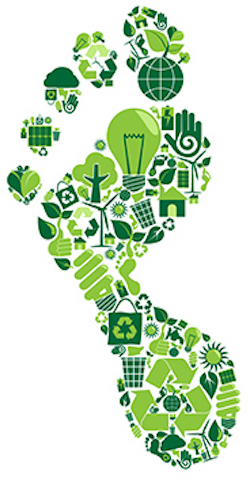4 Unconventional Ways to Be Mindful About Sustainability
 The evidence is in: our environment is in danger. The climate change threat is real. It’s a reality that is difficult and frightening to accept, but it seems that, at last, the world is finally waking up and taking action.
The evidence is in: our environment is in danger. The climate change threat is real. It’s a reality that is difficult and frightening to accept, but it seems that, at last, the world is finally waking up and taking action.
Sustainability efforts are increasingly becoming a priority for governments, businesses, and private citizens alike. The good news is that there are many ways to live sustainably. This article examines some of the more conventional approaches to sustainability and also describes a number of unconventional strategies you may not have tried — but should!
Tried and True Approaches To Sustainability
When it comes to sustainability, we already have a number of approaches that have withstood the test of time. In recent decades, for example, innovations in solar power have made the technology more affordable, accessible, and functional than ever before. This includes the development of state-of-the-art solar-infused construction materials, known as building-integrated photovoltaics (BIPV). These technologies, in essence, transform entire buildings into giant solar panels, without the need for external fixtures or solar banks.
And then there are even simpler ways to live sustainably. You might, for instance, switch to energy-efficient appliances, or start a composting bin in your backyard. You may even trade in single-use plastic water bottles for a reusable metal one. Each of these techniques will not only reduce your family’s carbon footprint, but they can also help you live healthier, such as by reducing your exposure to harmful plastics.
Go for Cold (Water, That Is)
In addition to the time-tested methods described above, you also have a wide range of more unconventional approaches to take your sustainable living to the next level. For example, you could use cold water instead of hot whenever possible, such as when showering or doing laundry.
Cold water uses less energy than hot water and it causes less wear and tear on fabrics, meaning your cold water-washed clothes will last longer. That, in turn, means less waste in the landfill.
Collect Rainwater
Sustainable living isn’t just about producing fewer greenhouse emissions. Water conservation is a critical aspect of sustainability. Collecting rainwater is an ideal way to reduce your water consumption while still meeting your family’s needs. Rainwater, for instance, can be used to water your lawn and garden, which allows you to also reap the rewards of growing your fruits and vegetables at home rather than buying imported produce.
Collecting rainwater in barrels is good for the environment in other ways as well. Collecting rainwater reduces the amount of stormwater runoff that enters the soil and the waterways, bringing with it a host of chemicals and other pollutants.
Recycle Your EV Battery
We all know there are few better ways to protect the environment than to trade in your old gas guzzler for an electric vehicle (EV). But did you know that you can up the sustainability quotient of your EV by recycling its battery?
EV batteries, in general, last around 10 to 15 years, which means that the first EVs to sell at volume, such as the Chevy Volt, will soon reach the end of their batteries’ life expectancy. Rather than having all of these EV batteries clogging landfills with potentially hazardous pollutants, dealers and recyclers are repurposing EV battery components.
The fact is, EV batteries contain lots of valuable materials, from steel and copper to rarer minerals and metals, from lithium to cobalt to nickel. Each of these can be recycled for use in new EV batteries and other items. And that means that your EV — and its battery — can truly be the gift that keeps on giving to the earth!
Take the Zero Waste Challenge
Your family’s sustainability lifestyle probably already has you recycling, repurposing, and reducing your consumption of water, energy, paper, plastic, and other material. But one unconventional, and highly effective, way to ratchet things up a notch is to strive for a zero-waste lifestyle.
To be sure, achieving truly zero waste may be an impossibility for most modern humans. However, the principal goal of the movement is to seek — and capitalize on — every opportunity to reuse rather than discard or incinerate materials.
In addition to more familiar aspects of the zero-waste lifestyle, such as composting, you can also integrate repurposing and reusing strategies into almost every part of daily living. This could include furnishing your home with items made from reclaimed wood or buying clothing that has been repurposed or manufactured from recycled materials. Even something as simple as bringing along a multi-use cloth bag when shopping for groceries can advance your household’s zero-waste goal.
The Takeaway
As the threat of climate change looms, sustainability becomes less of a choice and more of a necessity. The good news is that there are many ways to embrace a sustainable lifestyle. Indeed, by implementing a few less conventional strategies into your environmentally friendly home and life, you and your family can take your sustainability impact to the next level.

